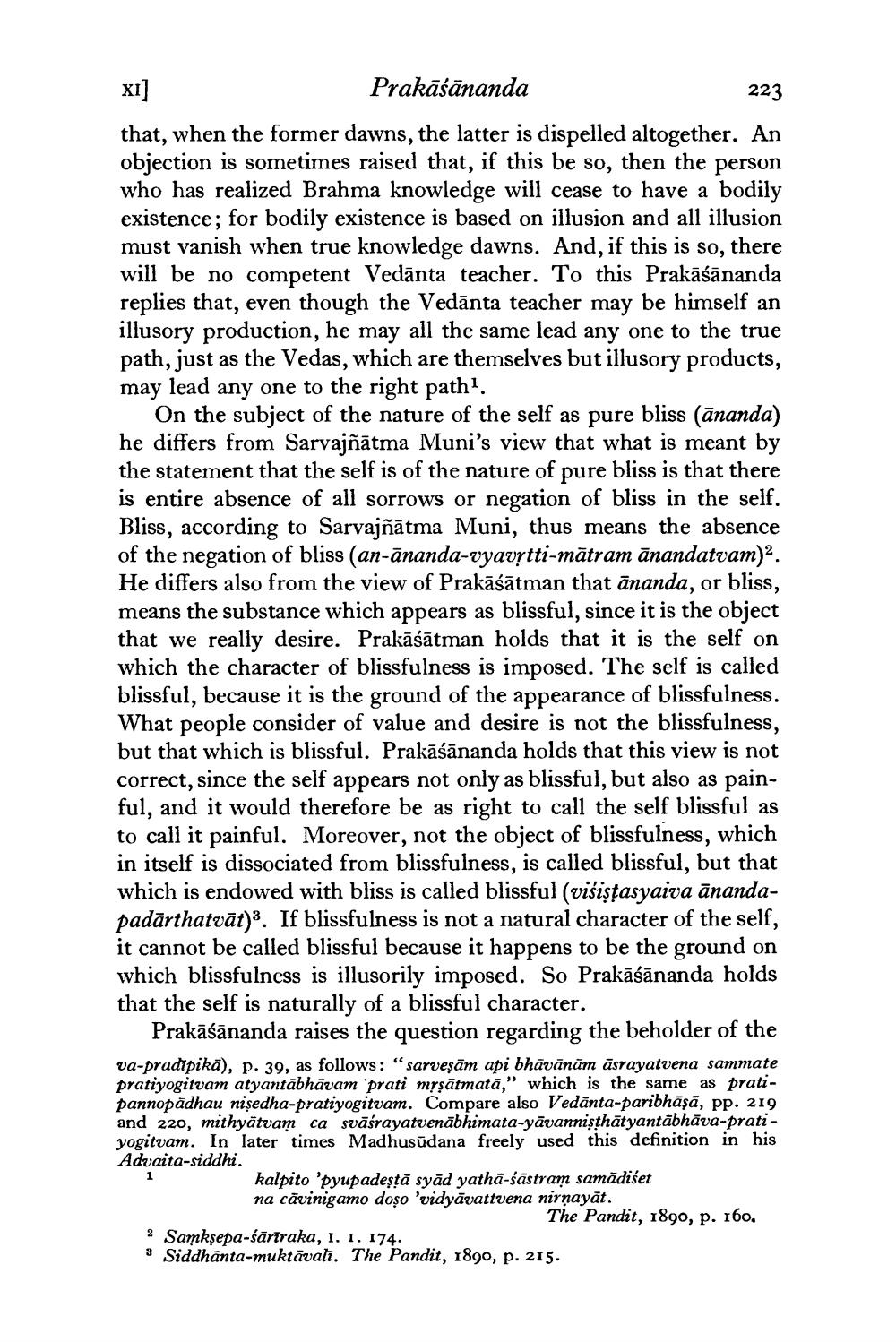________________
XI]
Prakāśānanda
223
that, when the former dawns, the latter is dispelled altogether. An objection is sometimes raised that, if this be so, then the person who has realized Brahma knowledge will cease to have a bodily existence; for bodily existence is based on illusion and all illusion must vanish when true knowledge dawns. And, if this is so, there will be no competent Vedanta teacher. To this Prakāśānanda replies that, even though the Vedanta teacher may be himself an illusory production, he may all the same lead any one to the true path, just as the Vedas, which are themselves but illusory products, may lead any one to the right path1.
On the subject of the nature of the self as pure bliss (ānanda) he differs from Sarvajñātma Muni's view that what is meant by the statement that the self is of the nature of pure bliss is that there is entire absence of all sorrows or negation of bliss in the self. Bliss, according to Sarvajñātma Muni, thus means the absence of the negation of bliss (an-ānanda-vyavṛtti-mātram ānandatvam)2. He differs also from the view of Prakāśātman that ananda, or bliss, means the substance which appears as blissful, since it is the object that we really desire. Prakāśātman holds that it is the self on which the character of blissfulness is imposed. The self is called blissful, because it is the ground of the appearance of blissfulness. What people consider of value and desire is not the blissfulness, but that which is blissful. Prakāśānanda holds that this view is not correct, since the self appears not only as blissful, but also as painful, and it would therefore be as right to call the self blissful as to call it painful. Moreover, not the object of blissfulness, which in itself is dissociated from blissfulness, is called blissful, but that which is endowed with bliss is called blissful (visiṣṭasyaiva ānandapadarthatvāt). If blissfulness is not a natural character of the self, it cannot be called blissful because it happens to be the ground on which blissfulness is illusorily imposed. So Prakāśānanda holds that the self is naturally of a blissful character.
Prakāśānanda raises the question regarding the beholder of the va-pradipika), p. 39, as follows: "sarveṣām api bhāvānām āsrayatvena sammate pratiyogitvam atyantabhavam prati mṛşatmatā," which is the same as pratipannopádhau nişedha-pratiyogitvam. Compare also Vedānta-paribhāṣā, pp. 219 and 220, mithyätvam ca svāśrayatvenābhimata-yavanniṣṭhatyantabhava-pratiyogitvam. In later times Madhusudana freely used this definition in his Advaita-siddhi.
kalpito 'pyupadeṣṭā syad yatha-śāstram samadiset na cavinigamo doso 'vidyavattvena nirnayāt.
The Pandit, 1890, p. 160.
2 Samkṣepa-śārīraka, I. 1. 174.
3 Siddhanta-muktavali. The Pandit, 1890, p. 215.




